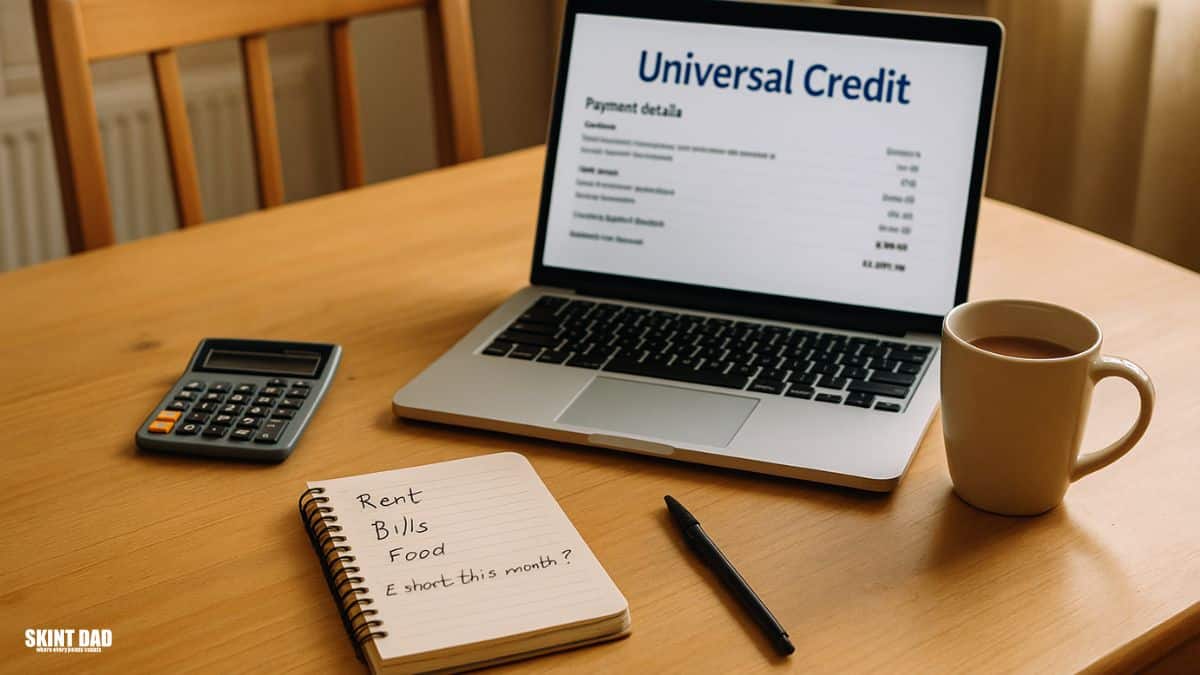If your Universal Credit payment sometimes feels smaller than it should be, you are not alone.

Nearly half of all UC households had money taken off their award this year. It often comes as a shock, especially when every pound matters.
This guide breaks down why it happens and what you can do to keep more of your money each month.
Get a free £10 bonus with Swagbucks
Earn a bit of extra money in your spare time with surveys, videos, and simple tasks you can do at home.
New users can get a £10 bonus when they sign up.
Get the £10 bonus
What deductions actually are
A deduction is when the Department for Work and Pensions takes money from your Universal Credit before it reaches your bank account.
The amount depends on your situation, but the rules can feel confusing. Many people only notice when their payment suddenly drops.
The good news is that most deductions fall into a handful of clear groups, and once you know which one affects you, it becomes much easier to sort.
Advances you are paying back
A lot of people ask for an advance at the start of their claim because the first payment takes around five weeks. This advance is a loan from the government and must be paid back through your monthly UC.
If you borrowed £400 as an advance, you might see around £40 come off each month until it is fully repaid.
If the repayment feels too high, you can ask the DWP to stretch the payments over a longer period. This can give you more breathing room.
Old debts from other benefits
Some people have money taken off to pay old debts from things like Housing Benefit or Tax Credits. These can follow you onto Universal Credit many years later.
If the debt feels unfamiliar, you can ask for a full breakdown. Mistakes do happen, and you have the right to understand exactly what is being taken and why.
Read next: Where to Find Simple (and Free) Debt Advice
Rent arrears and housing debts
If you fell behind on your rent, the DWP can send part of your UC directly to your landlord each month. This is meant to help you stay in your home, but it can cut into your income.
You can speak to your work coach or your landlord to agree a smaller repayment if the current amount is pushing you into hardship.
There is some flexibility as long as you show you are trying to keep on top of things.
Energy, water, and council debts
Some households have deductions for unpaid bills or council debts. These are usually added after the provider asks the DWP to recover the money from your UC.
A quick way to bring these down is to talk to the company directly. Many offer affordable repayment plans once you explain what you can realistically afford.
Read next: Struggling with energy bills? Free Post Office pop-ups could help
Sanctions
If the DWP decides you have not met a work-related rule, they can reduce your UC for a short period. If this happens, you can challenge the decision through a Mandatory Reconsideration.
Many sanctions get overturned when people explain their circumstances clearly.
Benefit cap reductions
Some families lose part of their UC because of the benefit cap. This mainly affects households in high-rent areas or those with several children.
The cap does not apply if someone in the household gets certain disability benefits or earns above a set amount.
If you think the cap is hitting you unfairly, you may be eligible for a Discretionary Housing Payment from your local council.
How much can they actually take
Most deductions have a limit. In many cases, the DWP cannot take more than around 25% of your standard allowance.
For someone on the basic allowance, this might mean around £80 a month. Knowing the limit helps you spot if something looks too high.
How to check your deductions
The easiest way is through your online UC journal. Look for the section that breaks down your statement. Each deduction should be clearly listed.
If a line does not make sense, you can message your work coach or call the Universal Credit helpline to ask for more information.
How to get deductions reduced
If the amount being taken is leaving you short, you can ask the DWP for a lower rate. Explain what you can afford and show your essential spending.
They can reduce some repayments or give you more time to pay.
Citizens Advice and local welfare teams can also help you put together a simple budget to support your request.
A quick tip to avoid future deductions
If you ever need an advance or fall behind on bills, try to agree a repayment amount you can manage from the start. Many deductions grow because the first plan was too high.

Skint Dad says:
Most families are doing the best they can, so a clear repayment plan that works for you is a lot better than letting debts creep up and hit your UC without warning.
Final thoughts
Deductions can feel frustrating, but once you understand which type you are dealing with, it becomes much easier to fix. A few simple steps can help you protect your income and keep more money for food, bills, and everyday life.
Saved a few quid with our tips?
If Skint Dad has helped you spend less or feel more in control of your money, you can support the site with a small contribution.
- Side hustles and benefits in the UK: what you need to know - 8 January 2026
- Lloyds Bank switch deal: grab £250 plus Disney Plus for free - 6 January 2026
- Thinking of doing the Co-op freezer deal? Read this first - 6 January 2026
